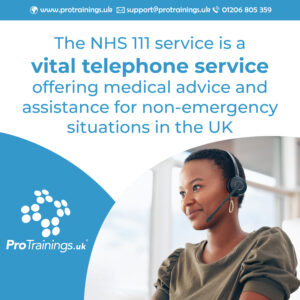

The NHS 111 service is a vital telephone service offering medical advice and assistance for non-emergency situations in the UK. Explore the latest data from NHS England, highlighting the common types of calls and the increased demand during the COVID-19 pandemic.
Urgent Care Needs: Addressing Medical Concerns
According to NHS England’s latest data, urgent care needs constituted approximately 60% of all calls to the NHS 111 service in 2020. Chest pain, breathing difficulties, and severe abdominal pain were among the prevalent reasons for these calls.
Mental Health and Skin Complaints
Additionally, mental health concerns, including anxiety and depression, accounted for around 6% of all calls, while skin complaints such as rashes and allergic reactions comprised approximately 5%.
Impact of COVID-19
The COVID-19 pandemic significantly influenced the types of calls received by the NHS 111 service. In 2020, approximately 12% of all calls were related to COVID-19, encompassing suspected cases and concerns about virus exposure.
Home Visits and Additional Support
The NHS 111 service also facilitates home visits from GPs and other healthcare professionals as deemed appropriate, ensuring comprehensive care beyond telephone consultations.
